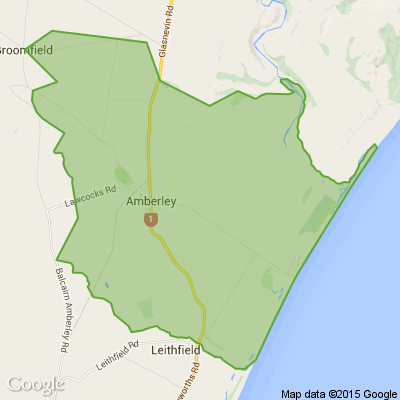Efforts to tackle coastal erosion in North Canterbury praised
By David Hill, Local Democracy Reporter
Efforts to tackle coastal erosion in North Canterbury have been praised by a top local scientist.
Environment Canterbury chief scientist Dr Tim Davie said the Hurunui District Council was leading the way in its efforts to engage with its coastal communities.
He said the Hurunui example could provide a model as the incoming government considered the proposed third piece of the Resource Management Act reforms on climate change adaptation.
The Hurunui District Council has been working with its beach communities to develop coastal adaptation plans.
The first one, for the Amberley Beach community, was adopted by the council in July.
"It is community-led adaptation. It is not about having a centrally imposed decision, but the ability of communities to adapt," Davie said.
Sometimes a community needed to move, but there were other ways of adapting, he said.
"And in North Canterbury you have some examples of resilient communities because they have recent experience with the earthquakes, flooding and drought, and making sure communities can cope with these big events."
In the Amberley Beach Coastal Adaptation Plan options included moving the bund back further from the coastline, introducing other coastal protection measures or implementing managed retreat.
Davie said last week’s Government report, Our Atmosphere and Climate 2023, reinforced the need for central government support.
The report warned of bigger and heavier "atmospheric rivers", which carry water vapor from the tropics, often leading to huge deluges.
It also warned of warmer seas, coastal erosion, flooding in rivers, a rising sea level and impacts on biodiversity as the planet heats up.
"Smaller councils like those in North Canterbury will struggle to pay for this, but we need to look at the impact of these events which goes beyond the local community, so it needs support from central government."
Environment Canterbury chairperson Peter Scott said the report reinforced the need for government investment in Canterbury's rivers to future-proof the region against more frequent and severe climate events.
"Increased rainfall in Canterbury is putting pressure on our river systems and infrastructure, and damaging people's property's and livelihoods," he said.
"It shouldn't be solely up to ratepayers to fund the solutions that are needed. Co-investment with government is required to make a difference."
Davie said the 2021 Canterbury flood event was an example of an "atmospheric river".
A report by NIWA found the heavy rainfall that caused flooding in Ashburton in 2021 was 10% to 15% more intense due to the human influence on the climate system.
"A warmer air mass can hold more moisture and when it is released it leads to a major storm event."
Climate change predictions for Canterbury indicated the region could expect more incidents of high rainfall, with much drier periods in between.
More severe droughts increased the risk of wild fires, something Environment Canterbury is already anticipating this summer, Dr Davie said.
Climate change was expected to exacerbate the effects of the El Nino weather pattern this summer.
■ Public interest journalism funded through New Zealand on Air.

Scam Alert: Fake information regarding December Bonuses from MSD
The Ministry of Social Development is reporting that fake information is circulating about new ‘December bonuses’ or ‘benefit increases’
If you get suspicious communication, please contact Netsafe.

Poll: Are Kiwis allergic to “exuberance”? 🥝
In The Post’s opinion piece on the developments set to open across Aotearoa in 2026, John Coop suggests that, as a nation, we’re “allergic to exuberance.”
We want to know: Are we really allergic to showing our excitement?
Is it time to lean into a more optimistic view of the place we call home? As big projects take shape and new opportunities emerge, perhaps it’s worth asking whether a little more confidence (and enthusiasm!) could do us some good.

-
41.8% Yes
-
33.5% Maybe?
-
24.7% No
6 uueek old kitten uuanted
I rescued a kitten and nouu she needs a playmate. Anyone got a kitten of approx 6 uueeks of age that needs a home?







 Loading…
Loading…